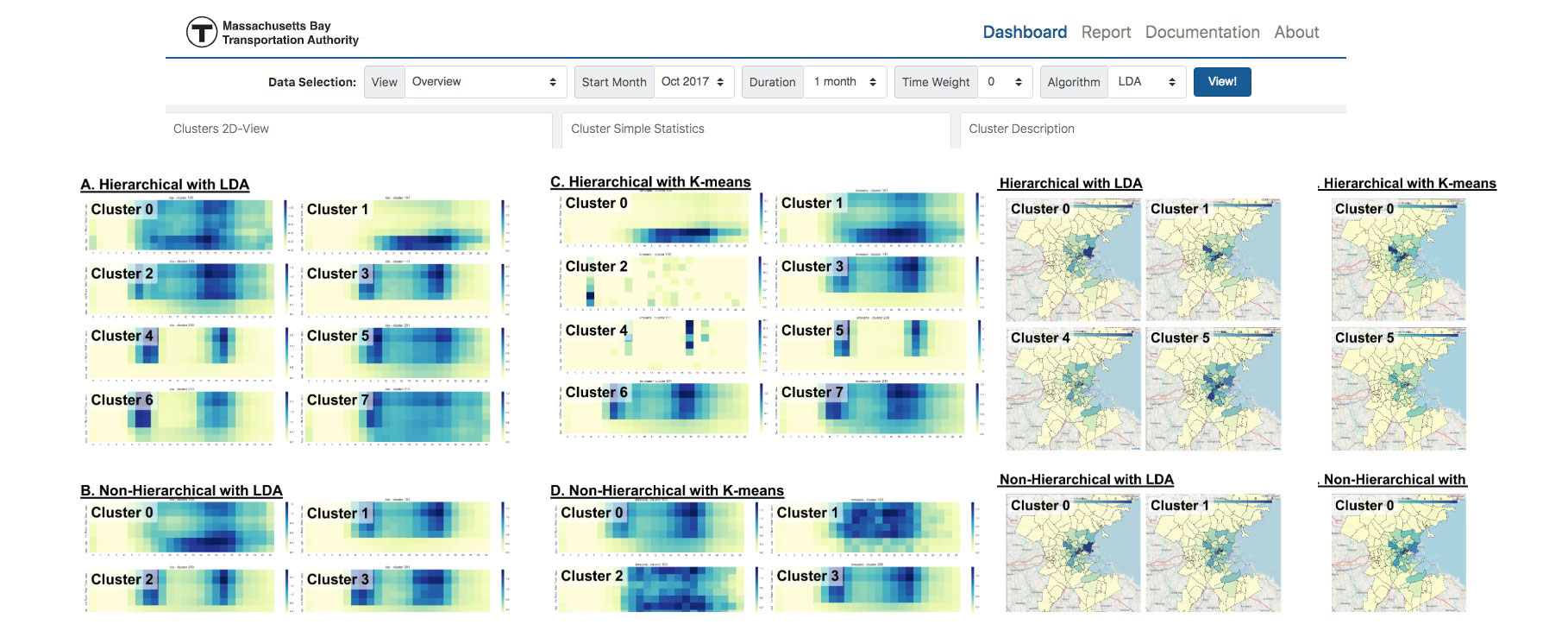
MBTA Riders Segmentation
The Who, What, and When of Public Transit
The Massachusetts Bay Transportation Authority (MBTA) is the largest public transportation agency in New England, delivering a complex system of subway, bus, commuter rail, light rail, and ferry services to riders in the dynamic economy of the Greater Boston Area. It is estimated that MBTA provides over 1.3 million trips on an average weekday. While MBTA collects a wealth of trip transaction data on a daily basis, a persistent limitation has been the organization’s lack of knowledge around rider groups and their respective ridership habits. Understanding rider segmentation in the context of pattern-of-use has significant implications in developing new policies to improve its service planning and in potentially changing its fare structure. Therefore, the project goal was to develop a flexible, reusable rider segmentation model on MBTA’s “core system” (encompassing local buses and subway) that can group individuals according to pattern-of-use dimensions. Visit this page for more information about the tool, code, and contributors.
- Artificial Intelligence
- Information Visualization
- Dynamic Dashboard
- Riders Segmentation